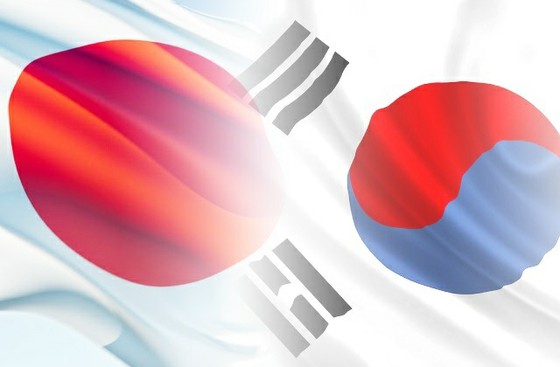 |
South Korea's Supreme Court has ordered two Japanese companies to compensate the former forced labor plaintiffs. However, regarding the issue of reparations, Japan has not complied with the 1965 Claims Agreement between Japan and South Korea, taking the position that it was already resolved.
In May last year, President Yoon Seo-gyul (Yoon Seo-gyeol), who showed his willingness to improve Japan-South Korea relations, was inaugurated, and the Yoon administration has taken various actions to resolve the issue. As a result of continuing to search for a solution, the Ministry of Foreign Affairs decided that the Japanese company, the defendant in the former forced labor lawsuit, was the Foundation for Supporting Victims of Forced Mobilization under the Japanese Empire, which is under the umbrella of the South Korean government and provides support to former forced laborers. The proposal to take over the reparations of the 1980s was a "potential proposal" for the solution.
And on the 12th of this month, the Ministry of Foreign Affairs held an open forum to resolve the issue at the South Korean National Assembly and announced this plan. However, the plaintiff's lawyer opposed the proposal, stating that it was a proposal in which the Japanese side would not bear any costs. Plaintiffs and civic groups supporting the plaintiffs are also strongly opposed. Lee Jae-myung, leader of South Korea's largest opposition party, the Minjoo Democratic Party, also strongly criticized the move, saying, "It's an unforgivable plan that gives Japan an indulgence." The South Korean media also showed a harsh tone. The Hankyoreh, which is known for its criticism of the current administration, wrote an editorial, saying, "The government rushed to improve relations between South Korea and Japan, ignoring the historical significance of the forced mobilization solution and apology and consolation for the suffering of the victims. If we force the measures, the relationship between South Korea and Japan will deteriorate further, and we will face headwinds."
However, the South Korean government is accelerating its efforts to resolve this issue. According to Yonhap News, the Japanese and South Korean authorities are planning to hold bureau chief-level talks in Seoul around the end of this month. Yonhap said, "We have held discussions about once a month so far, but the pace will be increased as we reach the final stage of coordination. Attention will be paid to whether concrete countermeasures such as participation will be presented."
As Japan-Korea talks over the lawsuit over the forced labor lawsuit reach their final stages, the Japanese government announced on the 19th of this month (Japan time) that the United Nations Educational, Scientific and Cultural Organization (UNESCO) would like to discuss the Gold Mine on Sado Island, which aims to be registered as a World Cultural Heritage Site. They corrected and resubmitted the recommendation letter that had been pointed out saying that at least 1,000 workers from the Korean Peninsula were mobilized to make up for the labor shortage at the Sado Gold Mine during the war. For this reason, South Korea claims that workers from the former Korean Peninsula were forced to work, and from this historical background, South Korea opposes aiming for the registration of the "Golden Mine on Sado Island" as a World Heritage Site.
In February last year, the Japanese government formally decided to recommend the gold mines of Sado Island to UNESCO as a candidate for World Cultural Heritage. However, UNESCO pointed out the inadequacy of the submitted nominations. The government announced in July last year that it had become difficult to achieve its goal of registering this year. UNESCO pointed out inadequacies in the description of the traces of the water conduit of the Nishimikawa Gold Mine, and the government corrected the points pointed out and resubmitted the recommendation. In response to Japan's move, the Ministry of Foreign Affairs summoned the minister of the Japanese Embassy in South Korea to protest. The spokesperson also issued a commentary, emphasizing that "We will continue to work together with UNESCO and the international community so that the history, including the pain of forced labor, is reflected in the heritage registration."
Also, regarding the release of treated water from TEPCO's Fukushima Daiichi Nuclear Power Plant into the sea, the Japanese government decided on the 13th of this month that it expects to start releasing the water around spring or summer this year. South Korea has long expressed concern about the issue of the discharge of treated water into the ocean, and is proceeding with its own verification, separate from investigations by international organizations. In response to the Japanese government's statement that the release would start in the spring or summer of this year, the Ministry of Foreign Affairs said, "From an objective and scientific point of view, the disposal must be safe and in accordance with international law and standards. We will respond while firmly maintaining our stance of not doing so."
"If these two issues (the gold mine on Sado Island and the treated water from the nuclear power plant) worsen public opinion toward Japan in South Korea, it could affect negotiations between South Korea and Japan aimed at resolving the conscription lawsuit," Yonhap News said.
2023/01/25 12:38 KST


